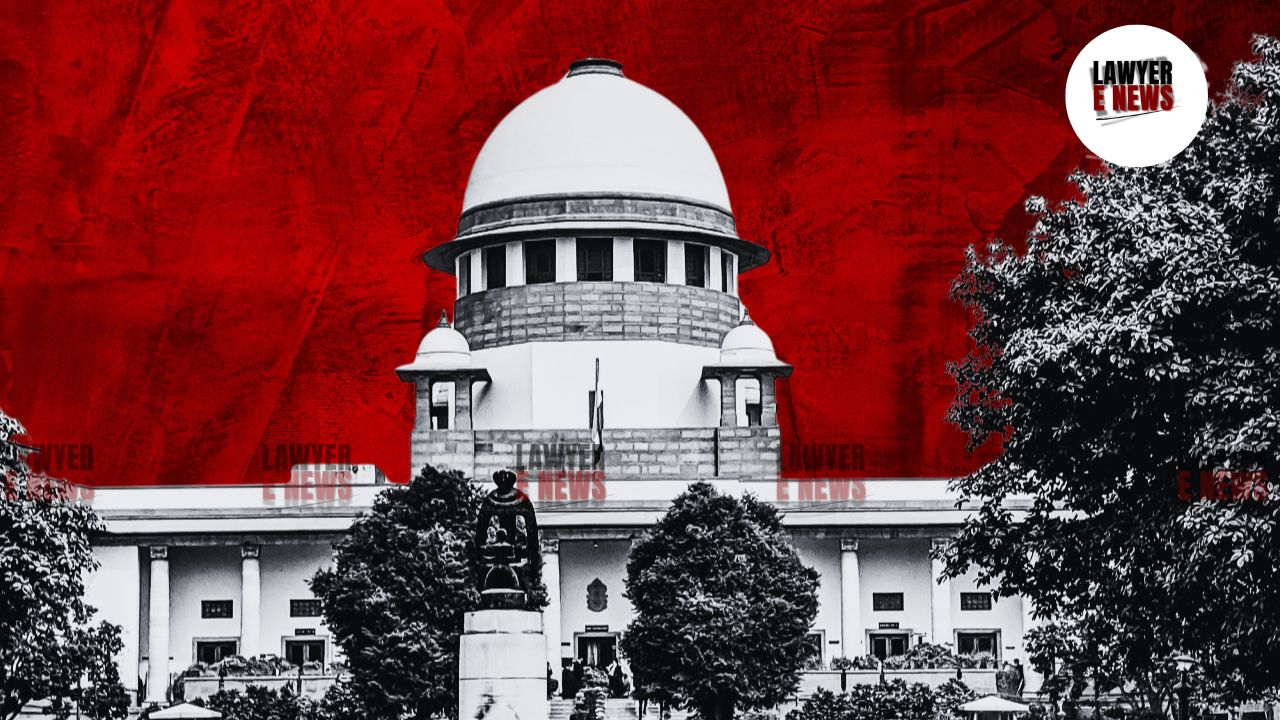-
by Admin
16 February 2026 1:47 PM



Suppression of Material Facts Amounts to Abuse of Process - In a significant judgment Supreme Court quashed criminal proceedings initiated against a wife by her husband and mother-in-law, terming the complaint a clear “abuse of process of law.” The Court highlighted that the complainants had concealed the crucial fact that the husband had filed for restitution of conjugal rights even after allegedly accusing the wife of theft.
The first appellant, Abhilasha Sharma, was married to the third respondent on 18th January 2020. Following allegations of domestic violence and dowry harassment, Abhilasha registered an FIR against her husband and mother-in-law under Sections 498-A, 323, 504, 506, 354 IPC and Sections 3 & 4 of the Dowry Prohibition Act.
Subsequently, the husband (third respondent) filed a petition under Section 9 of the Hindu Marriage Act for restitution of conjugal rights. However, within a few months, the husband and mother-in-law filed a private criminal complaint under Sections 379 and 120-B IPC alleging that the wife had committed theft of their ornaments.
The learned Magistrate took cognizance and issued summons. The appellants challenged the same before the High Court under Section 482 CrPC. The High Court refused to quash the proceedings, leading to the present appeal.
The Supreme Court pointedly questioned the conduct of the husband: “If according to the third respondent, the first appellant had indulged in the activity of theft in his house, surely he would not have filed a petition for restitution of conjugal rights for enjoining the first appellant to resume cohabitation with him.” [Para 5]
The Court emphasized that the complainants deliberately suppressed this fact while filing the criminal complaint: “What is most important is that the factum of filing a petition under Section 9 of the Hindu Marriage Act, 1955 was suppressed from the complaint.” [Para 5]
Stressing on the mandatory duty of the complainant under Section 200 CrPC to make a full and fair disclosure, the Court noted: “If the second and third respondents would have disclosed the factum of filing a petition under Section 9 of the Hindu Marriage Act, 1955 for restitution of conjugal rights after the alleged acts of theft on the part of the first appellant, perhaps the view of the learned Magistrate could have been different.” [Para 6]
The Court held that such suppression amounts to clear abuse of the judicial process.
The Bench found that the case was a fit one where the High Court should have exercised its inherent powers: “We are of the view that filing of the complaint and the prosecution thereof by the second and third respondents is nothing but an abuse of process of law. Therefore, this was a fit case for the High Court to exercise inherent jurisdiction under Section 482 of the CrPC. However, the High Court has not done that.” [Para 7]
The Court quashed both the complaint and the summoning order: “The impugned order dated 2nd January, 2024 of the High Court of Himachal Pradesh, Shimla is set aside and the order dated 12th April, 2022 passed by the Judicial Magistrate First Class, Court No.3, Shimla issuing summons on the complaint filed by the second and third respondents is hereby set aside.” [Para 8]
While disposing of the matter, the Court also clarified: “The findings recorded in this judgment are only for the purposes of deciding the prayer for quashing and the same will not have any bearing on the other pending proceedings between the husband and the wife.” [Para 10]
This ruling reinforces the settled principle that matrimonial disputes must not be converted into criminal proceedings by suppressing vital facts. The Supreme Court has reaffirmed that courts must be vigilant against malicious complaints designed to harass spouses, especially when civil disputes are pending.
Date of Decision: 4th March 2025
